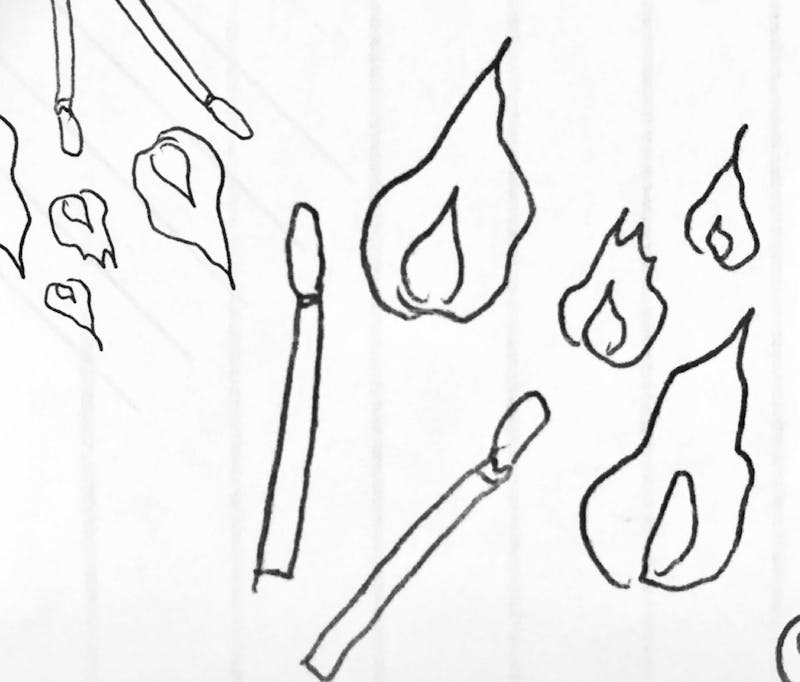Letter from the Editor 04.22.2021
On burnout, student journalism, and the need for boundaries

As the academic year winds down and we cram our heads with new theorems and theories, the most important lesson I’ve learned is a simple one: It is okay to quit things.
During my first year at Street, I profiled Vivian Dai (C ’19), a cognitive science major and marathon runner turned Teach For America Fellow. Her most sterling piece of advice was “to quit everything as soon as possible.” Even now, reading her words of wisdom still feels counterintuitive, a sneaky piece of reverse psychology reminding me to do everything and to do it well. Why quit something if you love doing it? Why quit something if you’re good at doing it? And, most importantly, why quit something if the work you’re doing is meaningful, even if that meaning comes at the expense of yourself?
There are a lot of reasons for quitting, none more valid than the other. But the reason we give ourselves the most self–deprecating shit for is perhaps the most earnest of all: We quit because we’re burnt out.
Burnout, the type of all–consuming exhaustion that feels like an engine sputtering on a highway, proliferates among journalists. The Columbia Journalism Review once dubbed 2018 “The Burnout Year,” for its particularly incendiary news cycle that forced journalists of color to constantly report at the nexus of their identities and the institutions committed to harming them. “Burnout has long occupied a kind of mythical, worst–case scenario, future destination in my mind,” writes Alexandra Neason, speaking to what feels like an accepted truth in my small universe. Burnout is something you stave off through perseverance. An inability to fight it is little more than personal failure.
Fast forward to 2021, and there are guides to fighting burnout (whose best tips include decluttering your computer and cutting down your screen time), yet there appears to be more journalists than ever hitting pause on their careers to rest. This month, Stacy–Marie Ishmael and Millie Tran, two women of color and higher–ups at the Texas Tribune, stepped down from their positions as editorial director and chief product officer, citing mental exhaustion. And just last week, Megan Greenwell, the editor of WIRED, announced she, too, was stepping down from exhaustion.
Nowhere among these reasons is there a lack of determination, of know–how, of passion. There’s just a simple lack of capacity. Our bodies and brains are not meant to do what is asked of BIPOC and non–cisgendered male journalists on a regular basis: To check our identities at the door, yet do reporting nuanced reporting on police brutality, systemic racism and misogyny, and the failures of our newsrooms to support us.
Make no mistake: This problem is not confined to the walls of professional publications. Every day of the week, you can find reporters and editors at The Daily Pennsylvanian and Street working until one day rolls into the next to ensure that you know how to get vaccinated, whether the University is owning up to its past, and less pressingly, how you all can take care of yourselves. Most of us don’t get paid, and those who do likely make little more than a dollar per hour if someone were to calculate it.
This semester alone, aside from leading Street, I’ve been asked to create a company wide demographics survey, help roll out a fellowship program, explain the need for student stipends, and lead trainings on reporting etiquette and anti–racist writing—all while taking classes and working, the way many of us do. Most days I am chained to my computer. Yes, these are roles and responsibilities I’ve taken on with glee and honor; I am tremendously proud of how far this organization has come over the past year in recognizing the duty it owes to marginalized communities on campus. But I’m also painfully aware of how far we must continue to go.
After internally recommending that the DP at large do more to prioritize and take care of its staff’s mental health, including setting curfews and limits on working hours, I was told by a superior that my team at Street “should work weekends, even if they’re not used to it” because others have in the past. This statement is not one I take personally. It is endemic of a larger problem: Young journalists feel they must work harder than they were yesterday and the person next to them because that’s what our industry looks like from a distance.
If college newsrooms are to take mental health and burnout more seriously, the publications we look up to need to model that behavior firsthand. Otherwise, many of us will be quitting our careers before they start.
More Like This
PennConnects
Newsletters
Get 34th Street's newsletter, The Toast, delivered to your inbox every Friday morning.
Newsletters